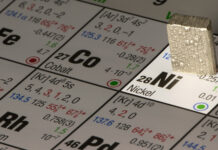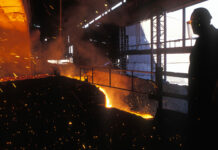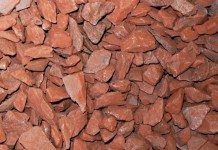
[miningmx.com] –ENTREPRENEUR Sam Jonah has emerged as the driving force behind private SA company Iron Mineral Beneficiation Services (IMBS), which has brought Russian steel giant Severstal into the country.
Severstal has bought a 25.6% stake in IMBS for $17m. This will enable IMBS to build the initial plant at Phalaborwa in Limpopo Province producing 50,000 tonnes per year of metallic iron briquettes, which can be used as a substitute for scrap metal in the steel-making process.
IMBS will manufacture the briquettes using its patented Finesmelt technology to treat the surface magnetite stockpiles built up by Palabora Mining as a byproduct from its main copper-producing activities.
The magnetite stockpile at Palabora amounts to more than 240 million tonnes (mt) of material, and Palabora has been exporting it at a rate of about 1mt annually through Maputo.
IMBS CEO John Beachy Head said these exports would continue, and that IMBS was still finalising the terms of the supply agreement with Palabora.
Jonah first became involved with IMBS about five years ago and subsequently his investment arm Jonah Capital agreed to put up venture capital for the project.
Jonah said that, after dilution through the issue of shares to Severstal, Jonah Capital and the Jonah family interests will own 36% of IMBS.
Beachy Head said a bankable feasibility study was under way for the first 50,000t/year plant, which should be in operation within 18 to 24 months.
IMBS would own 66.7% of the plant, with the Industrial Development Corporation holding the balance while Palabora had an option to buy in.
A pre-feasibility study was already under way to look at boosting production to 500,000t/year, which would cost between $100m and $120m to build.
The ultimate capacity of the plant – which could be expanded in modular stages – was potentially 2mt/year.
Beachy Head said the main advantages of the Finesmelt process were that it could treat fine and superfine iron ore without the need for agglomeration, and the plant used cheaper thermal coal instead of the more expensive coking coal required by blast and electric arc furnaces.
He said the briquettes could be used domestically to produce cheaper steel than was presently available in South Africa, or they could be exported far more economically than standard iron ore.
He commented that a 180,000t bulk carrier loaded with briquettes would move a cargo worth about $63m for the same freight charges as a similar volume cargo of iron ore valued at about $18m.
Severstal CEO Alexander Grubman commented he believed there was “no chance of failure with this project’, and that he was positive about the future of South Africa.
He indicated he was not concerned about the current debate over nationalisation in South Africa.
Grubman said: “I think that Africa, including South Africa, is where the big players in steel and mining have to be and we will consider doing more business in South Africa.’











